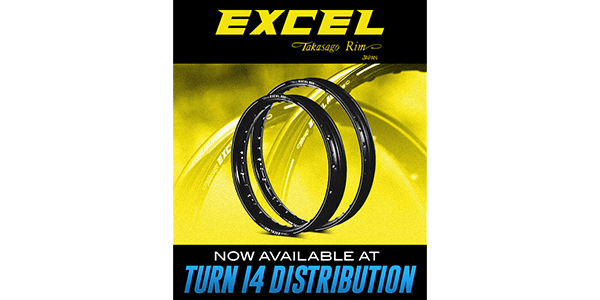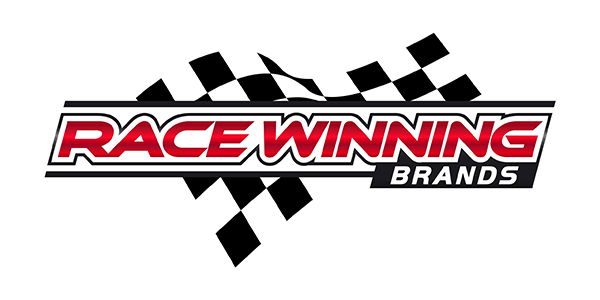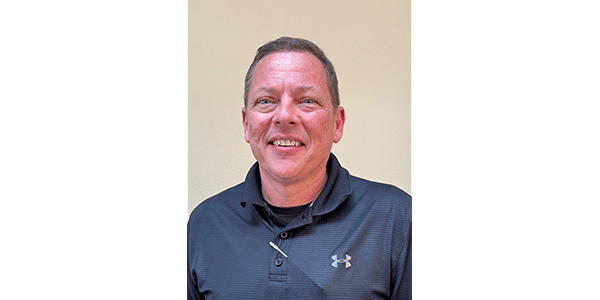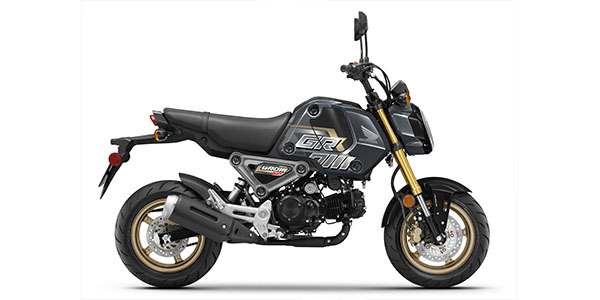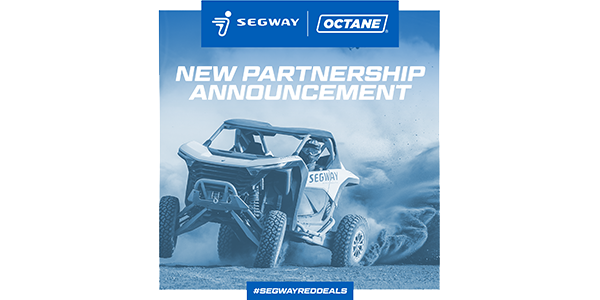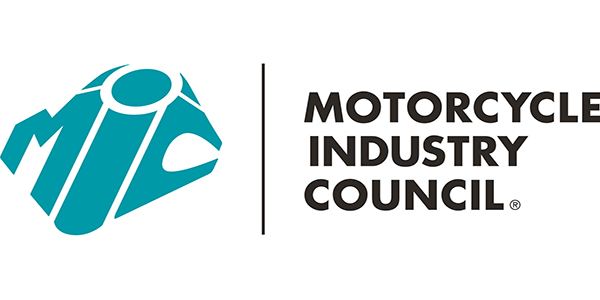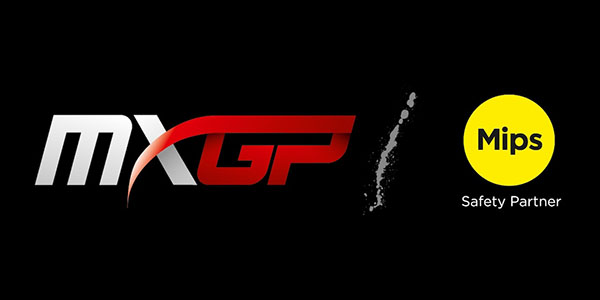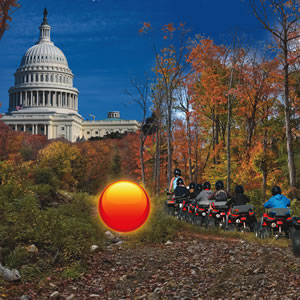 Restrictions on motorcycling can sometimes have a negative impact on business, but generally, what is good for riders is good for the industry. Federally mandated laws in the U.S. have been met with mixed reviews over the years, and ongoing power struggles between riders and the government have ensued. Motorcycle advocate groups and industry associations have long championed the causes of riders and dealers, but more must be done, action must be taken to preserve for the industry what many love about the lifestyle and the freedoms that being on a bike afford.
Restrictions on motorcycling can sometimes have a negative impact on business, but generally, what is good for riders is good for the industry. Federally mandated laws in the U.S. have been met with mixed reviews over the years, and ongoing power struggles between riders and the government have ensued. Motorcycle advocate groups and industry associations have long championed the causes of riders and dealers, but more must be done, action must be taken to preserve for the industry what many love about the lifestyle and the freedoms that being on a bike afford.
“I really believe that as the federal government puts up barriers to get into motorcycling or to make it more difficult and costly to enjoy the ‘lifestyle’ of owning and operating one, I think it absolutely impacts the industry,” says Jeff Hennie, vice president of government relations and public affairs for the Motorcycle Riders Foundation.
Looking at the top priorities of the industry as a whole, the Motorcycle Industry Council (MIC) says it is very focused on a few big issues. The first issue is the youth lead ban on kid-sized ATVs and motorcycles. Both MIC and the American Motorcyclist Association (AMA) have created campaigns to help organize and focus the industry around this issue.
Youth Lead Ban
There are very strict restrictions on the amount of lead content that can be in metal parts on a child’s “toy,” and that’s where the industry runs into trouble. Even though it’s a small amount of lead, it’s higher than the limits that are included in the current law. At issue is the fact that parents unable to buy their children youth-sized ATVs or motorcycles may allow their children to ride inappropriate adult-sized machines instead.
“There was a bill that was introduced and passed out of the House Subcommittee with oversight on Consumer Product Safety Commission (CPSC) that would ‘Stop the Ban’ as we’ve been calling for, by applying different lead content limits to outdoor recreational products,” says Paul Vitrano, general counsel for MIC. “It would also eliminate third-party testing and certification for compliance with those lead limits. It was supposed to be voted on at the end of May, but that was postponed because at this point it’s a strictly partisan bill with the Republicans in favor of it and the Democrats opposed. Even though with respect to our issue, we have widespread bipartisan support for a solution that would stop the ban, but the problem is the Republican bill goes a lot further than just our narrow issue.”
Vitrano says MIC’s No. 1 safety message for youth riders of ATVs is to ride the right sized vehicle. “Over 90 percent of kids that are killed or injured are riding adult-sized vehicles. And that’s the fact that the law has actually created a safety issue by removing these models. It’s a compelling reason why this issue needs to be resolved.”
Vitrano says that powersports dealers have been very influential in helping fight this issue, but there’s more work to be done. Dealers can sign petitions and make calls to local representatives by signing up at www.StopTheBanNow.com or following the Twitter feed @StopTheBanNow.
The AMA has also launched a grassroots campaign to end this law called “Kids Just Want to Ride.” In May, the association hosted hundreds of young motorcyclists, their parents and concerned riders with several U.S. Representatives, including Rep. Denny Rehberg (R-Mont.), author of the Kids Just Want to Ride Act, at the AMA Family Capitol Hill Climb in Washington, D.C. The event was a strong demonstration of public opposition to a ban on the sale of youth-model motorcycles and ATVs.
Off-Road Access
One of the biggest issues currently facing the industry and recreational off-road riders is the continuing debate over public lands for multiple use. The recreational trails program is one issue that everyone should be very interested in. It’s the program that started way back in the early ’90s and takes the gas tax revenues from OHVs and provides it for motorized and non-motorized trail programs across the U.S.
The AMA has issued numerous statements and alerts to its 230,000 members regarding efforts to inappropriately expand “Wilderness” areas. Both MIC and AMA have been working intensively on these issues from the beginning.
“If there’s no place to ride, sales will certainly be affected by that,” says Kathy Van Kleek, senior vice president for MIC government relations. “I think all of the dealers have seen over the last few years shrinking opportunities for riding and so many competing purposes for the shrinking land-mass. So we would love to get dealers involved and more aware of land access issues, and certainly at the federal level there are all of the public lands in the West that we are working with the Bureau of Land Management (BLM) and Forest Service on access to federal lands, but also there are issues in the East as well, along with state and local issues.”
MIC created a group 11 years ago called Americans for Responsible Recreational Access (ARRA), which is its public lands lobbying and grassroots arm. There’s a website that supports this group called www.arra-access.com, and riders, dealers and enthusiasts are encouraged to register on the website to receive legislative alerts on a national, state or local level. The alerts make it easy to just push the submit button to send comments to legislators on important land access issues.
“We would love dealers to be more aware of these issues and for all of them to sign up and to tell their customers to sign up as well, and to really get involved. People (elected officials) listen to their constituents much more than they do someone from Washington or California,” says Van Kleek.
MIC and others are concerned that tight budgets may lead to program cuts.
“They could just wipe out the program in the upcoming re-authorization for the larger transportation program,” says Van Kleek. “This is an issue that we’d really love to have dealers rally around and provide support for maintaining that program. There’s probably a trail in every dealer’s community somewhere within a reasonable radius that has taken advantage of that trail’s funding money.”
Van Kleek added that there may be a perception in the general public that people who use off-road trails are abusing the environment, but for the most part that isn’t true — riders are sticking to the trails and leaving a small footprint.
Motorcycle-Only Checkpoints
The National Highway Traffic Safety Administration (NHTSA) gave Georgia (the only state to date) a $70,000 grant to conduct one or more roadside motorcycle-only checkpoints (MOCs). The AMA and Motorcycle Riders Foundation (MRF) have been tracking this development since the beginning. This type of discriminatory checkpoint first appeared in New York several years ago. The AMA and other motorcycle advocate groups believe that the primary focus of motorcycle safety is in motorcycle crash prevention and not in arbitrarily pulling over riders and randomly subjecting them to roadside inspections.
“Probably the biggest bill we’re working on right now is H.R. 904, which is a bill that would prohibit the funding of motorcycle-only roadside checkpoints,” says MRF’s Hennie. “The motorcycle checkpoints in Georgia, they claim, were in the name of safety, but really it’s just a harassment tool. It’s a revenue raiser; they want to look at everybody’s license.”
Hennie says there’s a problem of unlicensed riders being over-represented in fatalities and injuries on motorcycles. “We want to get everybody licensed properly, we all agree on that point. But we don’t think it should be by the federal government giving money to the states to target motorcyclists only. We say, if you want to pull over everybody on the road and not just motorcycles, we’re more than happy to get in line. But they shouldn’t be singling out one segment of the vehicle population just because of the vehicle they use. So this bill would prohibit future funding of motorcycle-only checkpoints.”
Helmet Laws
Renewed interest for a national mandatory helmet law could bring unintended consequences for riders. In the 1970s, the federal government linked the disbursement to states of federal highway funds with a mandate for helmet use. This strategy was later determined to be unconstitutional by the courts. States have since been allowed to determine whether helmets should be mandated.
The AMA says it is currently tracking 50 helmet bills of one sort or another across the country. Some bills pertain to mopeds. While the AMA is not necessarily involved in moped issues, it has been tracking all moped bills because the trend is for states to start treating them as motorcycles (licensing, titling, registration, insurance, education, etc.).
“I really don’t think it’s a coincidence that the all-time low for motorcycle sales was 1996-’97, and at that point there was a mandatory helmet law for everyone in the country. Congress repealed that law at the end of 1996. After it was repealed, registrations and sales quadrupled over the next 10 years,” says Hennie.
NHTSA Administrator David Strickland suggested before a Congressional subcommittee in March 2010 that anything Congress could do to get riders to wear helmets was welcomed, including possible penalties. The AMA immediately sought clarification of Strickland’s comments. The AMA says it opposes mandates but strongly encourages the voluntary use of personal protective equipment, including gloves, sturdy footwear and a properly fitted motorcycle helmet certified by its manufacturer to be DOT compliant.
The AMA and other groups believe programs that can prevent crashes from occurring in the first place, such as rider education, motorist awareness, proper licensing and alcohol awareness should be the focus of legislators. Protective equipment mandates divert precious state resources from these programs to enforcement.
For a long time, NHTSA’s motto was “injury reduction,” which some think is the opposite of what it should be. Critics say that NHTSA’s belief about motorcycle riders is that everyone is going to crash. They want to mitigate what it can do to help riders have a safer crash.
Hennie says the MRF worked with legislators and had them officially change their outlook for highway safety to crash prevention. There’s a bill right now that is a non-binding resolution, meaning if it goes into law it doesn’t direct anyone to do anything. But it supports the NHTSA lobby ban, which prohibits NHTSA from lobbying states.
“What used to happen was anytime there was a state that wanted to change a helmet law, NHTSA would send one of their government lobbyists to the state to testify,” says Hennie. “So we said that didn’t make sense; it was a bad use of resources to send someone to do something a state may or may not want. The states are sovereign, and NHTSA shouldn’t be able to go there and bully them into doing what they think is best. So the ban stands, and they are legally forbidden from traveling to the states to lobby unless invited by the state legislator. H.R. 239 supports the ban and also continues to ask them to focus on crash prevention over injury reduction through things such as rider education and awareness campaigns. We feel the best crash is the one that doesn’t occur at all. Let’s avoid it to begin with.”
This article only scratches the surface of the political issues that affect powersports dealers, and when one issue is resolved, another arises in its place. Industry groups urge dealers to stay informed and be champions for the issues that face their customers. What issues affect you and your customers most? Drop MPN Editor Colleen Brousil an email at [email protected], and let’s see what we can do together!
Partner With the AMA
The AMA recently launched a Dealer Incentive Program to reward motorcycle dealers who support the AMA. A top advocate for the motorcycling lifestyle, the AMA keeps more motorcyclists on the roads and trails, which directly benefits your bottom line. That revenue becomes even more immediate and direct when you participate in the AMA Dealer Incentive Program. Participating dealers will receive a $15 rebate for every $39 AMA Membership sold. In addition, the AMA provides the following sales and service support to participating dealers:
• AMA member brochures/applications and marketing support materials
• AMA Dealer Incentive Program window decal
• Access to the AMA’s professionally trained call center staff for sales support and supply orders
• An AMA point of contact as long as your dealership participates in the program
Call (800) AMA-JOIN to enroll in the AMA Dealer Incentive Program

